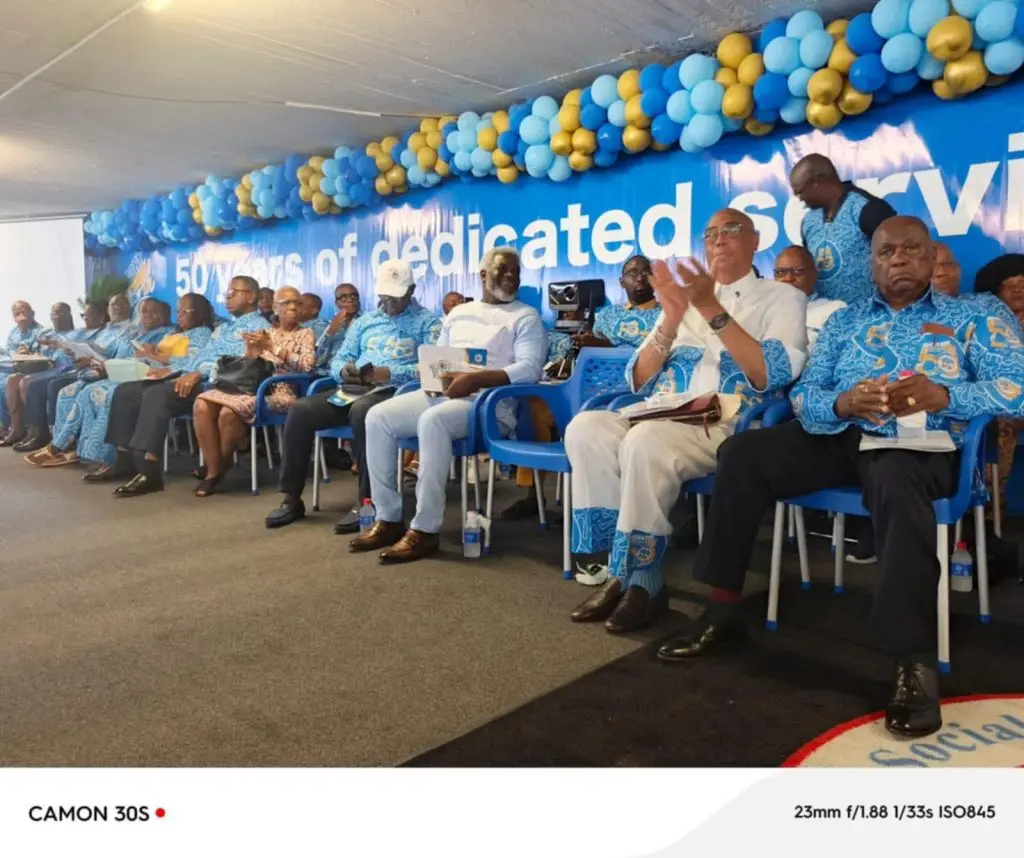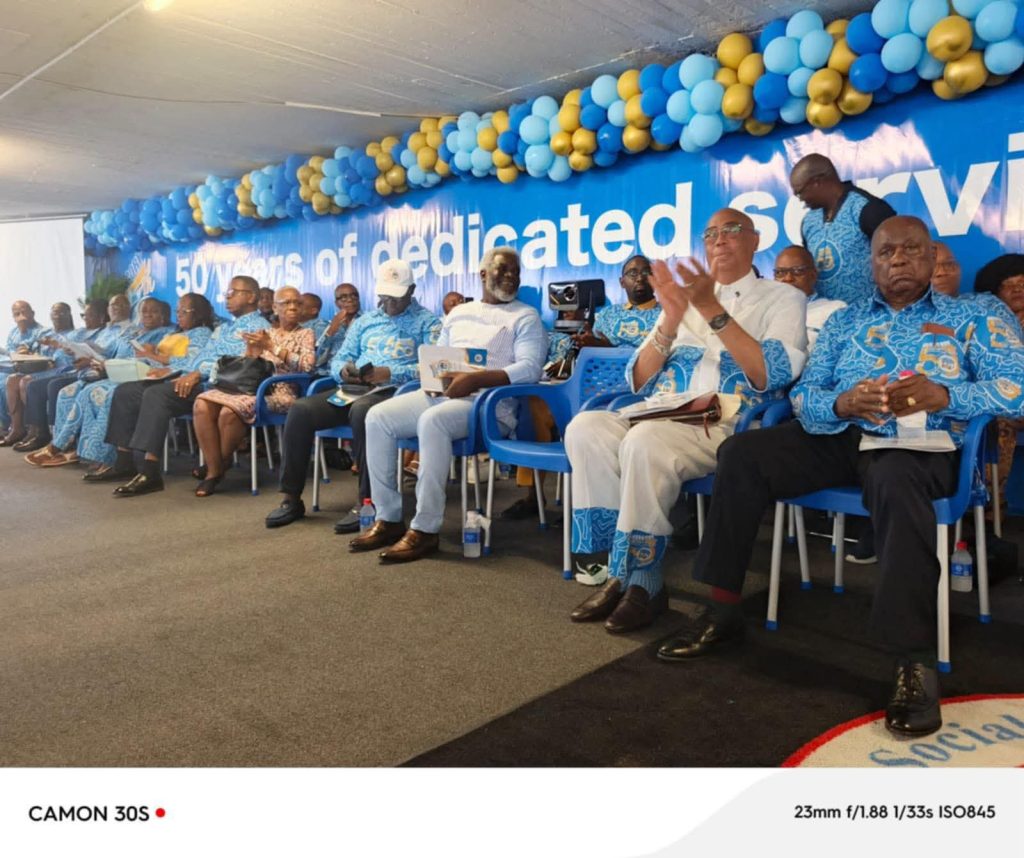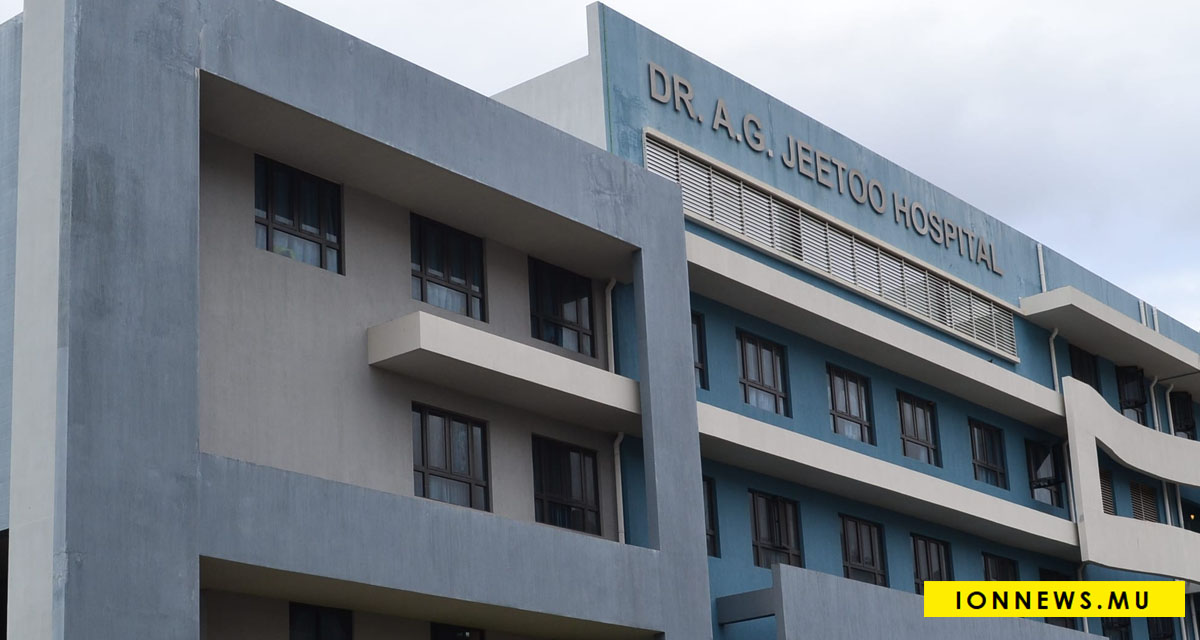
The post Liberia: NASSCORP At 50: Celebration of Protection, Progress, and Purpose appeared first on FrontPageAfrica.
1. A Historic Milestone: Liberia Social Security Turns 50
In 2025, Liberia social security proudly celebrates its golden jubilee, marking 50 years of unwavering service to the Liberian people. Since its establishment in 1975, NASSCORP has evolved from a modest institution into one of Liberia’s most vital pillars for social protection and economic resilience. This milestone is not only a reflection of institutional longevity, but also a testament to the country’s commitment to the welfare of its citizens. Over the decades, Liberia social security has provided benefits and support to thousands of workers and families, helping to stabilize livelihoods and reduce poverty levels across the nation.
This golden anniversary is also a moment of reflection—a chance to review past achievements and set a visionary path for the future. Whether through pensions, employment injury benefits, or health initiatives, the social security system has grown in both scope and effectiveness. As Liberians gather to commemorate this occasion, the nation recognizes NASSCORP’s contribution to national development and social equity. The future now demands a deeper expansion into informal sectors and better digital integration, ensuring all Liberians can access their rightful protections. As the country turns the page into its next 50 years, Liberia social security stands ready for the challenge.
2. Reforming the System: Key Policy Shifts that Shaped the Institution
One of the defining features of Liberia’s social security evolution has been its bold policy reforms. Starting in the late 1990s and accelerating in the 2000s, NASSCORP implemented significant structural and legislative changes aimed at modernizing the system. Key among these reforms was the introduction of clearer eligibility standards, improved record-keeping, and the use of digital tools to enhance service delivery. These changes brought greater efficiency, reduced fraud, and improved accessibility for the average Liberian citizen.
Notably, leadership under Dewitt Von Ballmoos focused heavily on transparency and sustainability, making the institution more accountable and financially sound. Through partnerships with international bodies and increased public awareness campaigns, the organization ensured that reforms were not just policy on paper but were felt on the ground. The Liberia social security system has transformed from a reactive model into a proactive institution, responding to the changing needs of society while keeping its foundational principles intact. These reforms have not only increased public trust, but also allowed the system to expand coverage to underserved populations, including those working in informal sectors. Such bold reforms have become a blueprint for other African nations seeking to revamp their own social protection models.
3. Infrastructure and Innovation: From Paper Files to Smart Systems
The transformation of Liberia social security is also visible in its physical and digital infrastructure. NASSCORP’s transition from paper-based records to smart digital systems is one of its most praised achievements. Offices across Liberia are now equipped with modern facilities, improving both employee productivity and client experience.
The adoption of biometric systems, digital databases, and electronic benefit tracking has streamlined operations, minimized fraud, and ensured faster delivery of services. Prior to these upgrades, beneficiaries faced long delays and procedural uncertainties. Today, claim processing is quicker, data is securely stored, and staff can better manage large volumes of requests. This modernization has allowed Liberia social security to scale its operations and improve service quality, especially in rural areas where access had historically been limited. Additionally, the institution has invested in staff training programs to ensure digital literacy and compliance with global best practices.
These technological leaps have positioned Liberia social security as one of the leading digital governance bodies in the region.
4. Expanding Benefits to the Informal Economy
One of the most groundbreaking shifts in Liberia social security has been its conscious effort to extend coverage to the informal workforce. Traditionally, social security programs have focused on formally employed workers, leaving a vast portion of Liberia’s labor force unprotected. Recognizing this gap, NASSCORP launched multiple campaigns aimed at sensitizing informal workers—such as market vendors, artisans, and self-employed individuals—about their rights and the importance of registering for social security.
The move was supported by the government and civil society partners, who helped design flexible contribution models suitable for informal income patterns. As a result, thousands of workers previously excluded from the safety net have now been integrated into the system. Liberia social security continues to pioneer methods that balance affordability and protection, ensuring that social benefits are not limited by employment type. This inclusivity is essential for national stability and long-term development. By embracing the informal sector, Liberia is building a more resilient and equitable society.
5. Health and Education: Investing Beyond Financial Benefits
While financial support remains the core of Liberia social security, the institution has made commendable strides in non-monetary services as well—particularly in health and education. NASSCORP has invested in building medical clinics, supporting public hospitals, and facilitating health insurance pilots for vulnerable groups. These initiatives have significantly improved access to healthcare for thousands of Liberians, especially in remote areas.
On the education front, Liberia social security has awarded scholarships, built vocational training centers, and supported school infrastructure projects. These efforts align with a broader vision: that social protection is not merely about income replacement, but about enabling citizens to live dignified, productive lives. The ripple effect of these programs is visible in healthier families, higher school retention rates, and better job readiness. By adopting a holistic approach to welfare, Liberia social security is not only addressing today’s needs, but also laying the foundation for future prosperity.

Liberia Social Security’s Impact on Economic Resilience
Over the past five decades, Liberia social security has played a pivotal role in fostering economic resilience across the nation. By ensuring steady retirement incomes and providing support through the Employment Injury Scheme (EIS), NASSCORP has alleviated financial stress for thousands of Liberian workers and their families. This reliable safety net has empowered citizens to participate more confidently in the economy, knowing that their welfare is safeguarded. As a result, economic stability and household purchasing power have improved steadily, contributing to broader national development goals.
Strategic Reforms Driving Liberia Social Security Forward
The transformation of Liberia social security has been underpinned by strategic reforms led by visionary leadership. The Amended NASSCORP Act of 2016 expanded pension coverage and increased contributions, addressing long-standing gaps in social protection. Investments in biometric ID systems and direct bank transfers have significantly reduced fraud and improved payment efficiency. These reforms demonstrate Liberia’s commitment to modernizing its social security infrastructure and aligning it with international best practices, ensuring sustainability and inclusiveness for future generations.
Healthcare Innovations Within Liberia Social Security
One of the most notable achievements within Liberia social security is the introduction of Jahmale Medical Solutions, a cutting-edge diagnostic center reducing the need for costly overseas treatments. This innovation reflects a broader strategy to enhance healthcare access for beneficiaries of the Welfare Scheme and the Employment Injury Scheme. By improving healthcare infrastructure and services, Liberia social security not only supports individual well-being but also reduces the economic burden of medical expenses on the country’s health system.
Expanding Coverage to Informal Sector Workers
Recognizing the importance of inclusivity, Liberia social security is actively working to extend protections to informal sector workers who have traditionally been underserved. Collaborations with the African Development Bank and the Civil Service Agency aim to expand pension coverage and provide pre-retirement counseling across Liberia’s counties. These efforts are vital in building a more equitable social security system that reflects Liberia’s diverse workforce and economic realities. For more information on similar initiatives, visit the African Development Bank.
Enhancing Transparency and Good Governance
Transparency and accountability are at the core of Liberia social security’s recent successes. The implementation of biometric verification and the introduction of Freedom of Information compliance training in 2025 underscore a commitment to ethical governance. These measures help restore public trust and ensure that funds reach the intended beneficiaries without leakage or corruption. Strengthening governance frameworks is critical for maintaining long-term financial sustainability and public confidence in the social security system.
Liberia Social Security’s Role in Disaster Response
has been instrumental in supporting national resilience during crises such as the West Point fire, Buchanan rainstorm, and Grand Gedeh County flood. The Welfare Scheme (WS) provided critical aid and relief, demonstrating the institution’s commitment to safeguarding vulnerable populations in times of emergency. These efforts have strengthened community trust and highlighted the importance of a robust social protection system that can respond swiftly and effectively.
Investing in Human Resource Development
A key pillar of Liberia social security’s success is its investment in human capital. The corporation has prioritized training staff locally and internationally, fostering high morale and professionalism across all regional offices. This focus on capacity building ensures that NASSCORP remains agile and responsive to evolving social protection needs, while maintaining operational excellence and service quality for all beneficiaries.
Future Prospects: Digitization and Regional Partnerships
Looking ahead, Liberia social security aims to further enhance digitization efforts and build stronger regional partnerships for social protection. These initiatives will improve transparency, service delivery, and cross-border collaboration, positioning Liberia as a leader in social security innovation in West Africa. Continued modernization and expansion of coverage will be vital in meeting the needs of Liberia’s growing and diverse workforce.
Conclusion: A Half-Century of Commitment and Progress
Celebrating 50 years, Liberia social security stands as a testament to visionary leadership, institutional resilience, and dedication to the welfare of Liberians. From modest beginnings to a transformative national institution, NASSCORP’s journey highlights the critical role of social protection in national development. As Liberia moves forward, this legacy of progress and purpose will continue to inspire efforts to build a more inclusive, secure, and prosperous society for all.
Read more about Liberia’s social developments in this article from our website: Latest Liberia Social Developments.
مصدر المقال: FrontPage Africa Online




